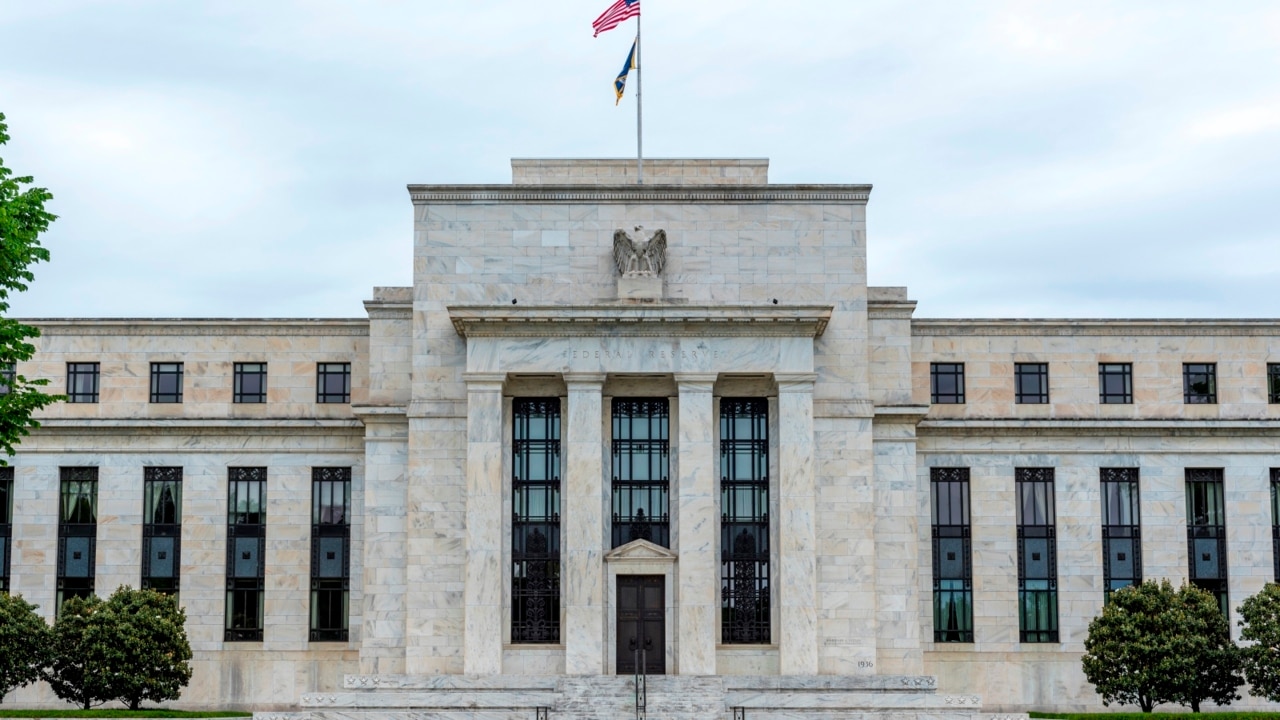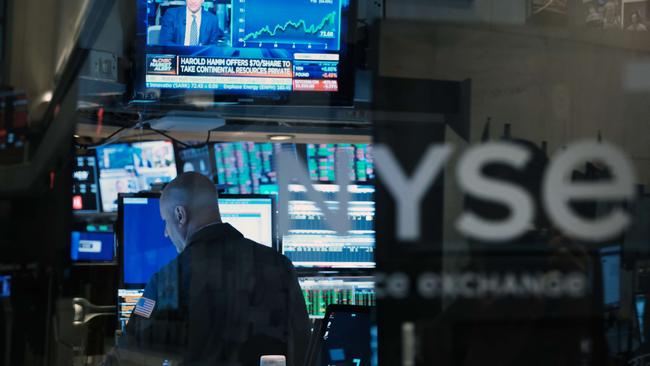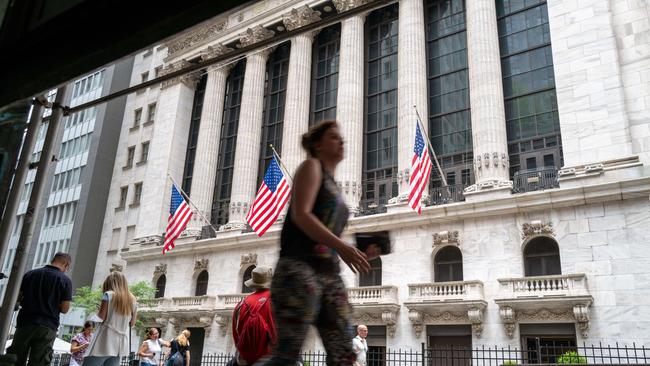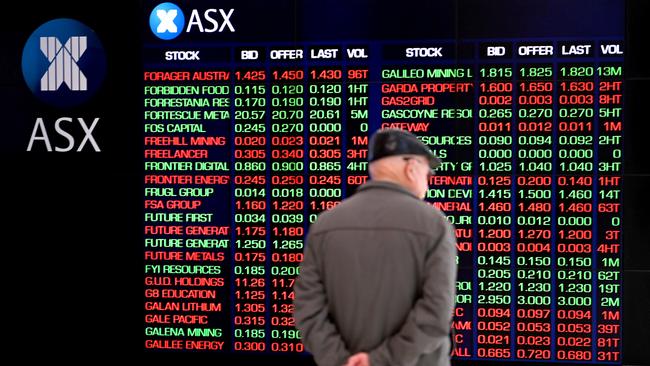As the threat of a US recession looms, will Australia follow suit?
After a market “bloodbath”, experts are warning America is on the brink of recession. But what is a recession, and how will it affect Aussie workers?

Interest Rates
Don't miss out on the headlines from Interest Rates. Followed categories will be added to My News.
The global battle against rapidly rising inflation took a worrying turn this week, with the US Federal Reserve raising interest rates by 75 basis points on Wednesday, prompting market chaos.
It was the biggest rate hike the US has seen in over three decades.
Stock market figures on Thursday were akin to a bloodbath, with the Dow Jones plunging 2.6 per cent, while the Nasdaq Composite fell 4.1 per cent.
These were just two examples of one of the steepest sell-offs in recent memory, set to cause shockwaves in other markets around the world, including Australia, still reeling after similar scenes of carnage on the ASX on Tuesday.
It’s prompted concern from experts about the US sliding into a recession, with the Global Financial Crisis of 2007-2009 fresh in the memory of millions of Americans.

Morgan Stanley CEO James P Gorman went as far as to say he believed the risk of recession was 50-50.
“It was inevitable this inflation was not transitory, it was inevitable the Federal Reserve would have to move faster than they were projecting,” he said earlier this week.
The warning shots, both Stateside and here, now have millions of Aussies asking: What is a recession, what does it mean for Australia and, most importantly, what does it mean for me and my family?
Hey Siri – what’s a recession?
“A period of temporary economic decline during which trade and industrial activity are reduced, generally identified by a fall in GDP in two successive (financial) quarters.
The above is the definition of recession, according to the most widely used smartphone search tool in the world.
Centre for International Economics executive director David Pearce puts it more simply.
“In a recession, output doesn’t grow, sales decline, real wages decline – the economy essentially slows down and doesn’t grow,” he told news.com.au.
“It’s understood to be economy-wide. In reality, at any one time though, different bits of the economy are doing different things. Your view about a recession may depend on where you sit in the economy within your industry.”

Although they sound scary, expansions and contractions of any economy are inevitable. Recessions come part and parcel with the normal cycle of national economies.
Australia itself last had a recession in 2020 due to the effects of the pandemic and lockdowns, but quickly rebounded by Christmas, well ahead of the normal length of a recession, which on average lasts for 11 months.
Why is America at risk of recession now?
The US Federal Reserve’s move to hike interest rates (essentially the ‘cost’ of money) was in response to America’s May Consumer Price Index (CPI) report, which showed inflation (the cost of living) had reached 8.6 per cent.
Raising interest rates in turn raises the value of cash to help combat surging prices – but it also makes it more expensive to borrow money, meaning mortgage and business owners need to tighten their collective belts, often causing a ripple effect in the broader economy.
This can sometimes lead to recession, as less money is moving through the broader market.

Pandemic-induced market downturn, disruption to trade due to Russia’s ongoing war in Ukraine and general global supply shortages all played their part to push US inflation to 8.6 per cent – the highest rate since the 1980s.
Add to that a weakening American construction industry, slipping mortgage repayments and worsening retail figures, and you have a country teetering on the brink.
“They’re big storm clouds here. It’s a hurricane,” Jamie Dimon, CEO of JP Morgan Chase, said.
“That hurricane is right out there down the road coming our way. We just don’t know if it’s a minor one or Superstorm Sandy … and you’d better brace yourself.”
Does that place Australia in the firing line?
Being the biggest stock market in the world, bad news in the US is bad news for the rest of the world.
Aussie interest rates have already risen steeply after being kept at record lows, with that number expected to rise exponentially in the coming months.
Mr Pearce warned that there were a number of “high risk factors” that could drive Australia into recession in the coming months.
“Inflation is very high, so the need to slow down the economy via raising interest rates creates a risk that we’ll slow down too much,” he said.
Mr Pearce noted that, similar to the US, inflated housing, high cost of living and energy deficiencies placed the economy in a fragile place.
“The international economy also presents a risk factor – we’re in a weird space in Australia at the moment where interest rates have been very low, there are lots of pressures on the economy from different directions at once and those pressures are doing different things.”

What will it mean for me?
Despite the bleak international outlook, Mr Pearce said Australia was in a relatively strong position to weather any storms.
“A traditional issue with a recession is people losing their jobs and unemployment – but right now we have low unemployment and all the labour market indicators show that we’re heading in the right direction,” he said.
Even so, he cautioned that when it comes to recessions “typically, the average household’s ability to afford the kinds of things they like would go down”.
“Another much more indirect aspect is that if share markets go down, that will affect people’s superannuation in the long-term – in the GFC we saw a lot of people about to retire having to add another year on to their working life.”
Mr Pearce warned that long-term solutions needed to be implemented if Australia was to avoid any more short-term economic hiccups.
“Some of the pressures on the Australian economy are demonstrating some structural weaknesses,” he said. “You think about the energy market, for example – there’s a vulnerability there.
“That’s something to really watch out for – decisions have to be made to put things in place for the long-term rather than solving short-term crises.”
More Coverage
Originally published as As the threat of a US recession looms, will Australia follow suit?




